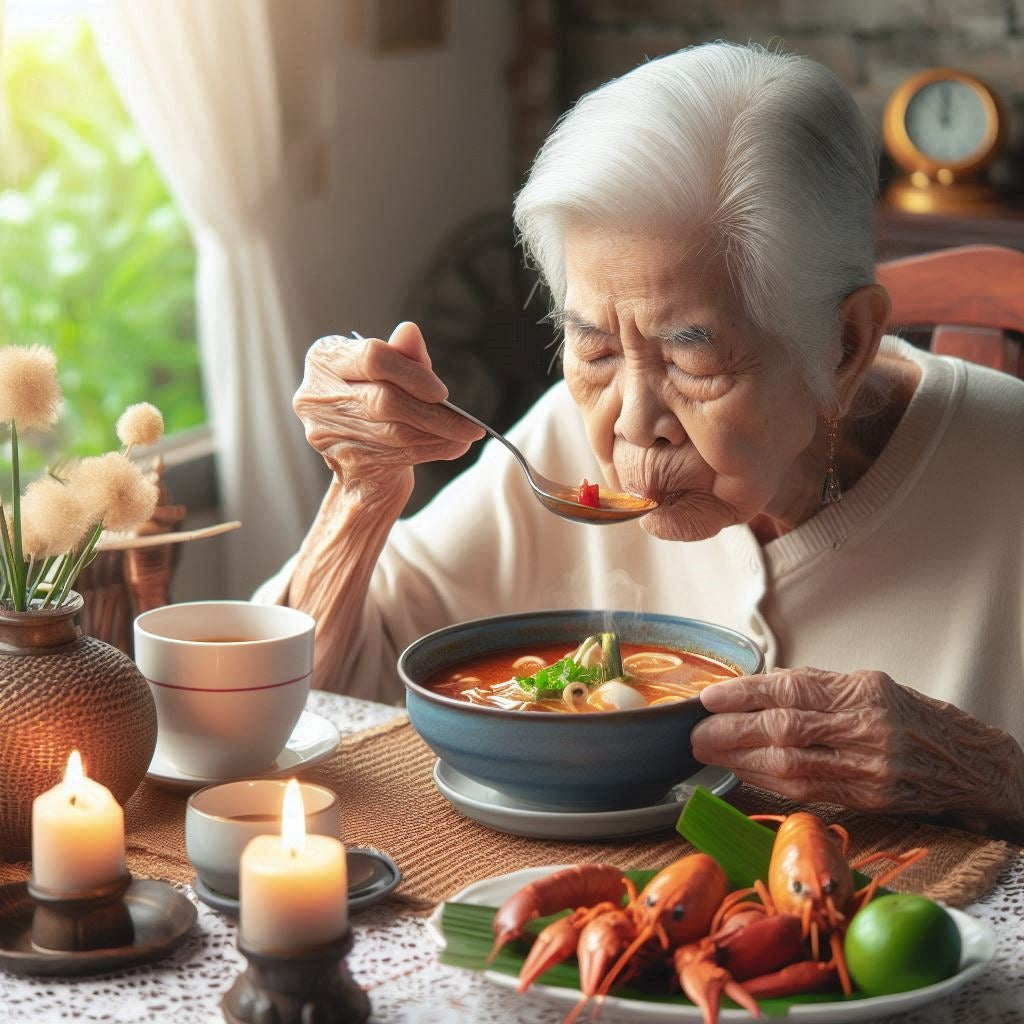
Nutrition and Diet for Seniors in Thailand
In Thailand, nutrition and diet play pivotal roles in maintaining health and well-being among the elderly population. Traditional Thai cuisine offers a rich variety of flavors and ingredients that can be adapted to meet the specific nutritional needs of older adults.
1. **Emphasis on Fresh Ingredients**: Thai cuisine traditionally relies on fresh herbs, vegetables, and fruits, which are rich in vitamins, minerals, and antioxidants. These ingredients not only add flavor but also provide essential nutrients necessary for maintaining good health as individuals age.
2. **Balanced Meals**: A typical Thai meal includes a balance of carbohydrates (rice or noodles), proteins (such as fish, chicken, or tofu), and vegetables. This balanced approach ensures that elderly individuals receive a variety of nutrients needed for energy, muscle maintenance, and overall well-being.
3. **Herbal Benefits**: Thai cooking often incorporates herbs and spices like lemongrass, galangal, and turmeric, known for their anti-inflammatory properties and potential health benefits. These herbs can support joint health, digestion, and overall immune function, which are particularly beneficial for aging bodies.
4. **Hydration**: In Thailand's warm climate, staying hydrated is crucial for elderly individuals to maintain optimal health. Coconut water and herbal teas are popular beverages that can help maintain hydration levels and provide additional nutrients.
5. **Cultural Considerations**: Thai culture emphasizes communal eating and sharing meals with family and friends. This social aspect of dining can contribute to emotional well-being and reduce feelings of loneliness or isolation, which are common concerns among the elderly.
6. **Adaptations for Health Needs**: Traditional Thai dishes can be adapted to accommodate specific dietary needs, such as reducing salt or spicy ingredients for those with hypertension or digestive sensitivities.
7. **Accessibility of Ingredients**: Fresh produce and ingredients for traditional Thai dishes are widely available in local markets throughout Thailand, making it easier for elderly individuals and their caregivers to access nutritious foods.
By embracing the principles of Thai cuisine—fresh ingredients, balanced meals, and cultural richness—elderly individuals in Thailand can enjoy flavorful and nourishing diets that support their health and vitality as they age. Consulting with healthcare providers or nutritionists can provide additional guidance for tailoring diets to meet individual health needs and preferences.
1. **Emphasis on Fresh Ingredients**: Thai cuisine traditionally relies on fresh herbs, vegetables, and fruits, which are rich in vitamins, minerals, and antioxidants. These ingredients not only add flavor but also provide essential nutrients necessary for maintaining good health as individuals age.
2. **Balanced Meals**: A typical Thai meal includes a balance of carbohydrates (rice or noodles), proteins (such as fish, chicken, or tofu), and vegetables. This balanced approach ensures that elderly individuals receive a variety of nutrients needed for energy, muscle maintenance, and overall well-being.
3. **Herbal Benefits**: Thai cooking often incorporates herbs and spices like lemongrass, galangal, and turmeric, known for their anti-inflammatory properties and potential health benefits. These herbs can support joint health, digestion, and overall immune function, which are particularly beneficial for aging bodies.
4. **Hydration**: In Thailand's warm climate, staying hydrated is crucial for elderly individuals to maintain optimal health. Coconut water and herbal teas are popular beverages that can help maintain hydration levels and provide additional nutrients.
5. **Cultural Considerations**: Thai culture emphasizes communal eating and sharing meals with family and friends. This social aspect of dining can contribute to emotional well-being and reduce feelings of loneliness or isolation, which are common concerns among the elderly.
6. **Adaptations for Health Needs**: Traditional Thai dishes can be adapted to accommodate specific dietary needs, such as reducing salt or spicy ingredients for those with hypertension or digestive sensitivities.
7. **Accessibility of Ingredients**: Fresh produce and ingredients for traditional Thai dishes are widely available in local markets throughout Thailand, making it easier for elderly individuals and their caregivers to access nutritious foods.
By embracing the principles of Thai cuisine—fresh ingredients, balanced meals, and cultural richness—elderly individuals in Thailand can enjoy flavorful and nourishing diets that support their health and vitality as they age. Consulting with healthcare providers or nutritionists can provide additional guidance for tailoring diets to meet individual health needs and preferences.



Leave a comment